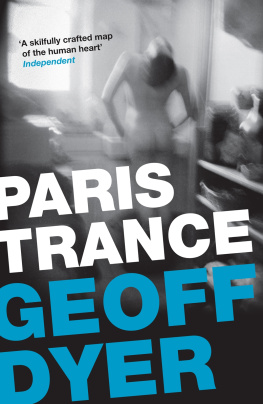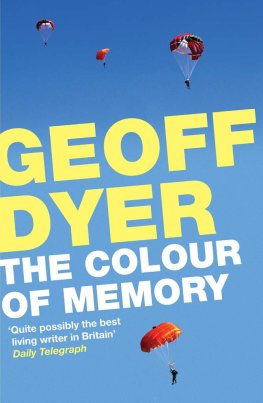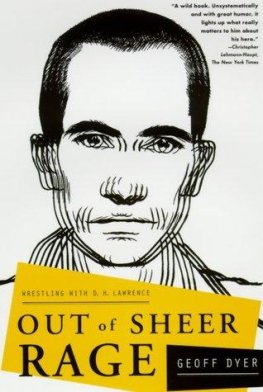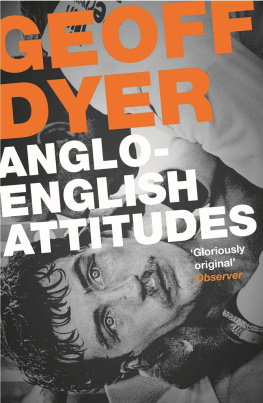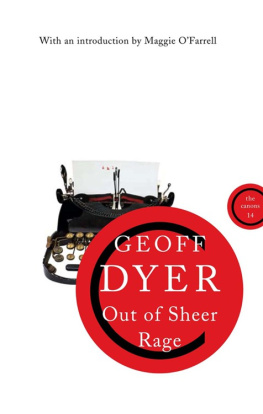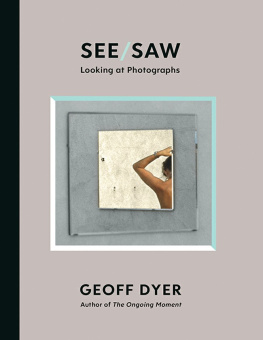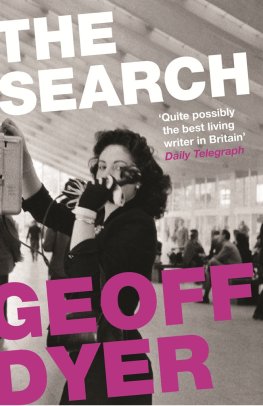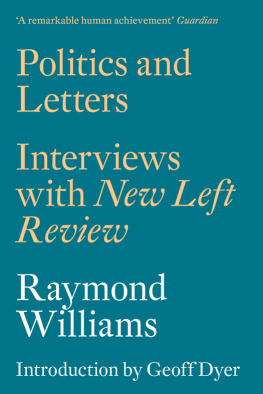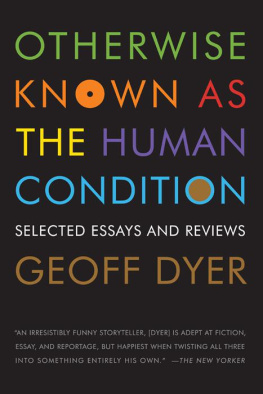Geoff Dyer - Paris Trance
Here you can read online Geoff Dyer - Paris Trance full text of the book (entire story) in english for free. Download pdf and epub, get meaning, cover and reviews about this ebook. year: 2010, publisher: Picador, genre: Detective and thriller. Description of the work, (preface) as well as reviews are available. Best literature library LitArk.com created for fans of good reading and offers a wide selection of genres:
Romance novel
Science fiction
Adventure
Detective
Science
History
Home and family
Prose
Art
Politics
Computer
Non-fiction
Religion
Business
Children
Humor
Choose a favorite category and find really read worthwhile books. Enjoy immersion in the world of imagination, feel the emotions of the characters or learn something new for yourself, make an fascinating discovery.
- Book:Paris Trance
- Author:
- Publisher:Picador
- Genre:
- Year:2010
- Rating:4 / 5
- Favourites:Add to favourites
- Your mark:
- 80
- 1
- 2
- 3
- 4
- 5
Paris Trance: summary, description and annotation
We offer to read an annotation, description, summary or preface (depends on what the author of the book "Paris Trance" wrote himself). If you haven't found the necessary information about the book — write in the comments, we will try to find it.
Paris Trance — read online for free the complete book (whole text) full work
Below is the text of the book, divided by pages. System saving the place of the last page read, allows you to conveniently read the book "Paris Trance" online for free, without having to search again every time where you left off. Put a bookmark, and you can go to the page where you finished reading at any time.
Font size:
Interval:
Bookmark:
About the author
Geoff Dyer is the author of four novels and eight non-fiction books. Dyer has won the Somerset Maugham Prize, the Bollinger Everyman Wodehouse Prize for Comic Fiction, a National Book Critics Circle Award, a Lannan Literary Award, the International Centre of Photographys 2006 Infinity Award for writing on photography and the American Academy of Arts and Letters E. M. Forster Award. In 2009 he was named GQs Writer of the Year. He lives in London.
Also by the author
Zona
Working the Room
Jeff in Venice, Death in Varanasi
The Ongoing Moment
Yoga For People Who Cant Be Bothered To Do It
Anglo-English Attitudes
Out of Sheer Rage
The Missing of the Somme
The Search
But Beautiful
The Colour of Memory
Ways of Telling: The Work of John Berger

This paperback edition published in Great Britain in 2012 by Canongate Books Ltd,
14 High Street, Edinburgh EH1 1TE
www.canongate.tv
Copyright Geoff Dyer, 1998
The moral right of the author has been asserted
First published in Great Britain in 1998 by Abacus, an imprint of Little, Brown Book Group, 100 Victoria Embankment, London EC4Y 0DY
Grateful acknowledgement is made to D. M. Conseil for their
kind permission to reprint the lines from Nouveau Western
by MC Solaar, from the album Prose Combat (Polydor).
British Library Cataloguing-in-Publication Data
A catalogue record for this book is available on
request from the British Library
ISBN 978 0 85786 405 5
eISBN 978 0 85786 340 9
Typeset in Goudy by Palimpsest Book Production Ltd, Falkirk, Stirlingshire
This digital edition first published in 2012 by Canongate Books
To Herv and Mimi
Many Ftes
The usual plan is to take two couples and develop their relationship. Most of George Eliots are on that plan. Anyhow, I dont want a plot, I should be bored with it. I shall try two couples for a start.
D. H. LAWRENCE
Even the loveliest dream bears like a blemish its difference from reality, the awareness that what it grants is mere illusion. This is why precisely the loveliest dreams are as if blighted.
THEODOR ADORNO
When Luke came to Paris with the intention of writing a book based on his experiences of living as he grandly and navely conceived it in exile, he was twenty-six years old (a fine age for a man, according to Scott Fitzgerald). As far as I know, he made absolutely no progress with this book, abandoning it except in moments of sudden, drunken enthusiasm in the instant that he began leading the life intended to serve as its research, its first draft. By the time we met, at the Garnier Warehouse, this book had assumed the status of a passport or travel visa: something which, by enabling him to leave one country and pass into another, had served its purpose and could be, if not discarded, then stored away and ignored. So its fallen to me to tell his story, or at least the part of it with which I am familiar. Our story, in fact, for by recounting this part of my friends life I am trying to account for my own, for my need to believe that while something in Luke tugged him away from all that he most loved, from all that made him happiest, it is his life and not mine which is exemplary, admirable, even enviable.
The events recorded here concerned only a handful of people and, quite probably, are of interest only to those people. Especially since story is almost certainly the wrong word. Whatever makes events into a story is entirely missing from what follows. It may well be that what urges me to preserve these events in the way I have the only way I could is exactly what stops them becoming a story.
Luke arrived in Paris at one of the worst possible times, in mid-July, when the city was preparing to close down for August. Parisians claim this is the best part of the year its easy to park, they say (after a certain amount of time in a city the parking is all you care about) but for someone who had just arrived it was the worst. The only people around were tourists and those forced to cater for them. Many shops and restaurants were shut and the few that were open closed far earlier than usual. Luke had rented a horrible apartment in the First arrondissement. On paper it had sounded perfect: right in the middle of the city, a few minutes walk from the Louvre, the Arcades, and other famous tourist sights. Unfortunately thats all there was: museums and tourist sights. The temporal heart of the city, the part that makes it what it is today as opposed to preserving what had been magnificent in the eighteenth century, or mythically bohemian in the 1920s had moved east into the Eleventh, close to what had once been the edge of town.
The apartment itself was a stained place with a sad curtain separating the sleeping area from the living area and nothing to separate the living area from the smells of the cooking area (the cooker itself comprised two hot plates, electric, one of which warmed up only reluctantly). It was the kind of apartment where, if possible, you avoided touching anything. The surfaces of the cooking area you couldnt call it a kitchenette, let alone a kitchen were all sticky. Even the worn linoleum floor was sticky. The fridge had never been defrosted and so the ice-box was just that: a box of furry ice in the depths of which, preserved like a thousand-year-old body in a glacier, could just be glimpsed the greenish packaging of a bag of frozen peas. Years of unventilated steam had made the paint in the bathroom bubble and peel. There was mould on the walls. Clothes hung up to dry on the cord above the bath never did. The shower curtain was grimy, the toilet seat warped, possibly dangerous. There were yellow-brown cigarette burns on the flush. To stop the taps dripping Luke had to twist them so hard he expected the pipes to snap. The window in the living area the only window in the place had not been washed for a long time. In a few years it would be indistinguishable from the wall. Already it was so grimed with pollution that it seemed to suck light out of the apartment like an extractor. An extent of patterned material had been stretched over the lumpy sofa but as soon as anyone sat down (Luke himself essentially), it became untucked so that the cigarette-scarred arms and blotched back were again revealed. The only stylish touch was provided by a black floor lamp with a halogen bulb and foot-adjustable dimmer switch. By keeping the light turned as low as possible Luke sought to keep at bay the simple truth that it was an ugly sofa in an ugly, sticky apartment in the middle of a neighbourhood that was really a mausoleum. At intervals he was filled with rage immigrants rage that Madame Carachos had had the nerve to rent this dump to him. On arriving in the city he had turned up at her lavish apartment and handed over a wad of bills to cover the rent for the two months they had agreed upon. They had taken a coffee together and then Madame Carachos, like everyone else, had left the city to the tourists, to those who could not afford to leave, to Luke.
He spent as little time as possible in the apartment. Mainly he walked, and everywhere he walked he glimpsed apartments where he wanted to live, restaurants where he wanted (one day) to eat, bars where he wanted to drink with friends he did not yet have. When he grew tired of walking he went to the cinema. (Ah, cinema, solace of the lonely young men and women of all great cities.) He saw a film a day, sometimes two. He became a connoisseur of the non-time that preceded the films themselves, especially in small cinemas where there were no advertisements or previews, where the audience was made up of four or five people, all of them alone. It was easy to see why, in films, fugitives and wanted men went to the cinema: not just to hide in the dark but because these intervals between performances were out of time. To all intents and purposes you might as well not have existed and yet, simultaneously, you were acutely conscious of your existence. When the lights faded always that same sequence of perception: the lights are fading, no theyre not, yes they are, yes and the curtains cranked back slightly to extend the tiny screen, there was always a moment, after the studio logos had been displayed, when the blaze of projected colour lit up the screen like Eden on the first day of creation. Disappointment and boredom often set in very soon afterwards but, for a few minutes at least, Lukes head filled with verdant images of city and sky, landscape and trees, and he believed utterly in the cinemas loneliness-obliterating promise of brightness and colour. If this faded he tried to stay there anyway, tried to become absorbed in the simple clarity, the to-no-avail lucidity of the projected image. As he began to lose interest in the film so the idea of the city began to lure him out of the darkness of the cinema. The sun hovering over buildings, light striking walls and shutters, people moving, cars massing at bridges, the river winding through the centre of the city: all the things he had hoped for from the film he had come to see were actually to be found outside. The cinema was a dungeon from which he could escape into a world of colour and light. He sat for a while longer and then got up and pushed open the exit bar, stunned when the brightness of the street crashed into him again.
Next pageFont size:
Interval:
Bookmark:
Similar books «Paris Trance»
Look at similar books to Paris Trance. We have selected literature similar in name and meaning in the hope of providing readers with more options to find new, interesting, not yet read works.
Discussion, reviews of the book Paris Trance and just readers' own opinions. Leave your comments, write what you think about the work, its meaning or the main characters. Specify what exactly you liked and what you didn't like, and why you think so.

